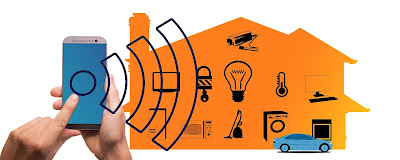1. Assess Your Smart Home Needs
Before rushing to buy all of the latest smart home gadgets, it’s important to sit down and assess your needs. What is it that you're looking for in a smart home? Are you interested in greater energy efficiency, increased security, or convenience? By identifying your goals, you can make informed decisions about what type of devices you need.
2. Determine Your Budget
Smart home devices can be expensive, which is why it's important to determine your budget upfront. Consider how many devices you might need and look at the prices of each one. Don't forget to factor in installation and maintenance costs as well. Once you have your budget set, you can start looking for devices and systems that fit within your financial constraints.
3. Evaluate Compatibility
Not all smart home devices are compatible with one another. Before making a purchase, make sure to check compatibility with any other smart devices you have. If you’re planning on building a smart ecosystem, make sure to focus on devices that seamlessly integrate with one another.
4. Choose an Appropriate Protocol
There are several smart home protocols on the market, such as Z-Wave, Zigbee, and Wi-Fi. Each protocol comes with its own advantages and disadvantages. Make sure to choose an appropriate protocol for your devices that aligns with your goals.
5. Consider Privacy and Security
Smart homes, while convenient, come with risks. It’s important to consider the privacy and security implications of each device. Make sure to choose devices from reputable companies that have strict security protocols in place to prevent any breaches of personal data. It’s also important to update system software and firmware frequently.
6. Take into Account Your Living Situation
Depending on your living situation, certain smart home devices may not be practical or supported. Renters may have restrictions on what kind of devices they can install in their homes, while homeowners may have more flexibility. If you're a renter, make sure to check the lease agreement for any restrictions on smart home devices.
7. Evaluate the Learning Curve
Building a smart home requires some technical know-how. Before purchasing any devices, make sure to evaluate the learning curve. Consider how easy it is to set up and maintain each device, as well as how user-friendly the accompanying apps are. Make sure to do your research, read instructions thoroughly, and ask for help if needed.
8. Plan for the Future
Technology changes quickly, and you don’t want to get stuck with outdated devices in a few years. Make sure to purchase devices that have flexibility and can be updated as technology advances. Consider devices that have smart home hub compatibility or devices that can be integrated with other systems.
9. Look for Devices that are Energy Efficient
One of the main benefits of a smart home is greater energy efficiency. Make sure to look for devices that are energy efficient and can save you money on your bills. For example, smart thermostats can adjust temperature based on your behavior and can save up to 10% on your energy bill.
10. Prepare for Power Outages and Internet Downtime
Smart devices require electricity and internet to work. It’s important to prepare for power outages and internet downtime by having backup power sources and alternative solutions. Consider keeping backup batteries for devices that have them and creating an alternative internet solution like a hotspot with your phone.
In Conclusion, building a smart home can be exciting, but it can also be overwhelming. By keeping these 10 considerations in mind, you can create a smart home ecosystem that is streamlined, secure, and energy efficient. Remember to assess your needs, set a budget, evaluate compatibility and security, and plan for the future and unforeseen setbacks. With the right preparation, you can create a smart home that’s tailored to you and your lifestyle.


No comments:
Post a Comment